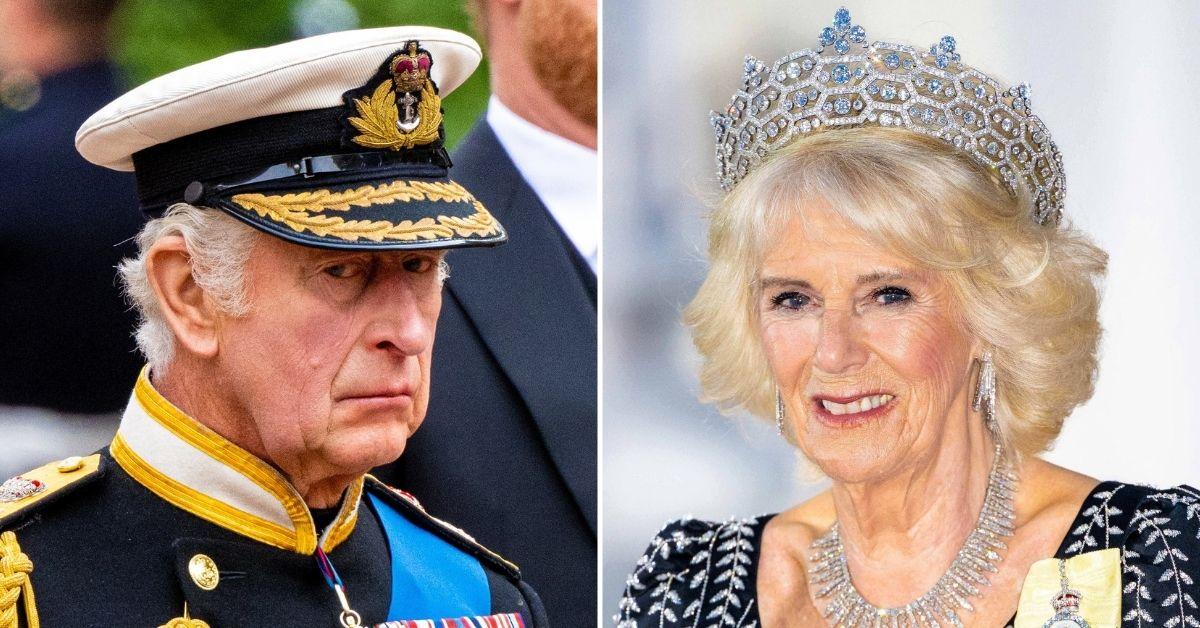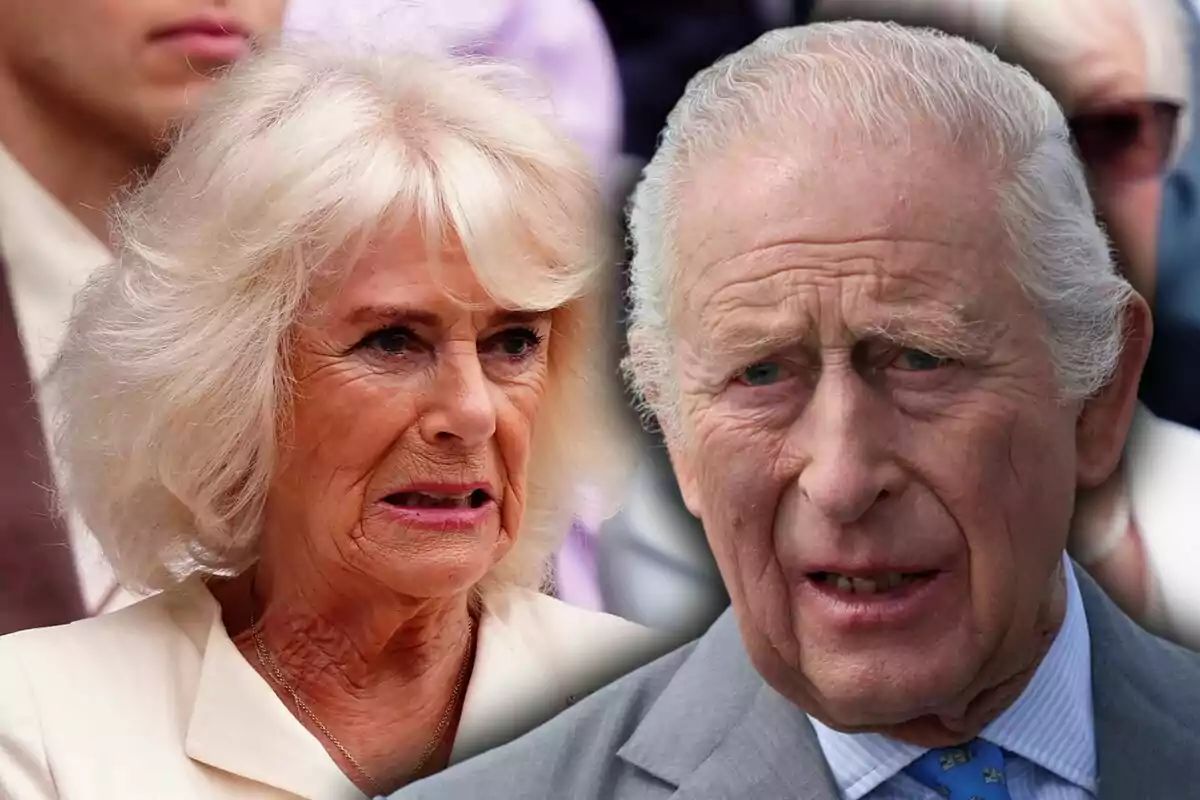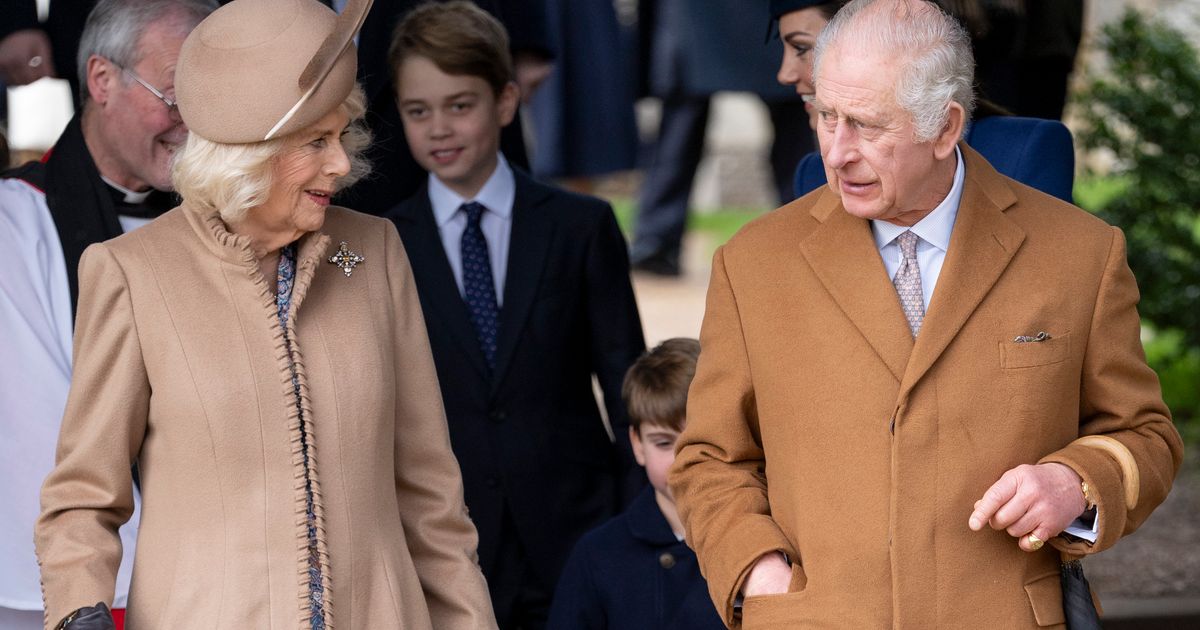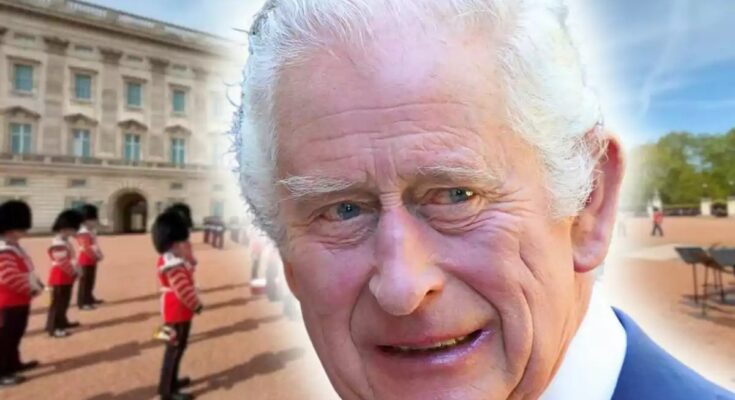Disclaimer: This article analyzes rumors circulating online regarding King Charles III and Queen Camilla. The events described have not been confirmed by Buckingham Palace or credible news outlets. Readers are encouraged to verify information through trusted sources such as BBC, The Guardian, or Reuters.
Buckingham Palace Rumors: Midnight Crisis Meeting Story About King Charles and Queen Camilla Goes Viral
For centuries, Britain’s royal family has fascinated the world. Every gesture, appearance, and announcement is analyzed and debated. In the digital age, however, rumors travel faster than ever before, often outpacing official statements. A recent example is the viral story claiming that King Charles III held a “midnight crisis meeting” at Buckingham Palace before sharing heartbreaking news about Queen Camilla.
Although unverified and not supported by official palace communications, the story spread rapidly online, illustrating the power of social media to turn speculation into a trending topic.

How the Rumor Started
The origins of the “midnight crisis meeting” rumor are somewhat unclear. Several blogs and social media accounts began circulating dramatic claims that King Charles summoned senior aides, doctors, and family members for an urgent meeting at Buckingham Palace after midnight. According to the viral posts, the King later delivered emotional news about Queen Camilla’s health, leaving the nation stunned.
No major British media outlet confirmed this story, and Buckingham Palace has not released any statement supporting it. Still, the lack of official information created a vacuum where speculation thrived. Posts were clipped, shared, and repackaged across platforms like TikTok, YouTube, and Facebook, reaching millions within hours.

Why Royal Rumors Go Viral
The British monarchy has long been a subject of fascination worldwide. Even in the 21st century, when political power rests firmly with Parliament, the royal family commands enormous cultural influence. Stories about their private lives often overshadow official events or policies.
There are several reasons why rumors about the royals spread so quickly:
-
Global fascination – Royalty remains a symbol of tradition, glamour, and history.
-
Lack of transparency – The monarchy often keeps health and family matters private, which fuels speculation.
-
Emotional appeal – Rumors involving illness, grief, or late-night drama create a sense of urgency and empathy.
-
Media amplification – Once a dramatic claim gains traction, content creators replicate it for views and engagement.
The “midnight crisis meeting” rumor had all these elements: secrecy, emotional weight, and the image of a king rushing to address his people.

Public Reaction Online
Reactions to the story were mixed. Some readers expressed sympathy, posting messages of support for King Charles and Queen Camilla under hashtags like #StayStrongCharles and #PrayersForCamilla. Others, however, voiced skepticism, pointing out the lack of credible news reports.
On platforms such as Reddit and Twitter, debates quickly emerged. Was the story another case of sensational “clickbait journalism”? Or could it have roots in genuine but unconfirmed events behind palace walls?
This split response highlights a growing challenge in the digital age: audiences often struggle to separate rumor from verified fact, especially when the subject matter is highly emotional.
The Role of Social Media in Spreading Rumors
Social media platforms are designed for speed and shareability. A dramatic headline, striking photo, or emotional video clip can go viral before fact-checkers have time to respond. Unlike traditional journalism, which typically requires verification and accountability, online posts can spread unchecked.
In the case of the Buckingham Palace rumor, many viral videos used dramatic titles such as “Breaking News from the Palace” or “Midnight Announcement Rocks Britain.” These phrases create a sense of urgency, encouraging users to click and share — even if the underlying claim is weak.
Algorithms also play a role. Content that generates strong emotions, such as shock or sympathy, is more likely to appear in feeds. As a result, a single rumor can snowball into a global trend overnight.
_updates.jpg)
Why Rumors About Royal Health Are Sensitive
Health rumors are particularly sensitive because they concern the well-being of real individuals. Queen Elizabeth II’s passing in 2022 was preceded by weeks of speculation about her health, much of it inaccurate. The same dynamic is now unfolding with King Charles and Queen Camilla.
For the royal family, privacy is crucial, but silence often fuels further speculation. For the public, the lack of clear information creates uncertainty. This tension makes royal health rumors both irresistible and problematic.
The Difference Between Rumor and News
The “midnight crisis meeting” story serves as a reminder that rumors should not be confused with verified news. Credible outlets such as the BBC, The Guardian, or Reuters follow strict editorial standards. They require confirmation from official sources before publishing sensitive information.
In contrast, viral posts often prioritize engagement over accuracy. While they may attract millions of views, they can mislead audiences or cause unnecessary alarm. For readers, the key is media literacy: checking multiple sources, considering the reliability of outlets, and approaching dramatic claims with healthy skepticism.

What This Reveals About Society
Beyond the royal family, the spread of the Buckingham Palace rumor reflects broader social dynamics. It shows how people turn to stories of monarchy not only for information but also for emotional connection. In times of uncertainty, tales of midnight meetings or emotional speeches resonate because they humanize figures often seen as distant symbols.
It also highlights the role of digital culture in shaping narratives. Stories are no longer simply reported; they are performed, shared, and remixed. A rumor becomes part of collective imagination, regardless of its accuracy.

Conclusion: Learning from the Viral Rumor
The viral claim about King Charles’s midnight crisis meeting and Queen Camilla’s condition illustrates both the allure and the danger of modern rumor culture. On the one hand, it shows how deeply the monarchy still matters to people worldwide. On the other, it underscores the need for critical thinking in an age where speculation spreads faster than facts.
Until Buckingham Palace makes official announcements, stories like this should be treated as rumors rather than confirmed news. While they may capture the imagination, they also serve as reminders of why credible journalism and cautious interpretation remain essential.



